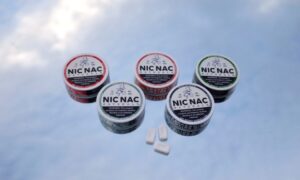Within the realm of metabolic health, insulin resistance has emerged as a widespread concern, impacting millions globally. Adopting a comprehensive strategy to address this condition entails incorporating lifestyle adjustments, placing a particular emphasis on nutritional reinforcement.
This article delves into the intricacies of Best Supplements for Insulin Resistance, unravelling the scientific underpinnings of insulin resistance while unveiling a selection of the most promising supplements poised to bolster metabolic resilience.
Understanding Insulin Resistance
Insulin resistance, a physiological condition characterized by the diminished responsiveness of cells to insulin, emerges as a significant health concern, potentially culminating in heightened blood sugar levels and the eventual onset of type 2 diabetes.
This complex phenomenon is influenced by a multitude of factors, encompassing genetic predispositions, obesity, a sedentary way of life, and suboptimal dietary habits, all of which play integral roles in its manifestation and progression.
Essential Nutrients for Insulin Sensitivity
Here is the list of a few essential nutrients for insulin sensitivity:
-
Magnesium
Magnesium plays a pivotal role in insulin function and glucose metabolism. Deficiencies in magnesium have been linked to insulin resistance. Supplementing with magnesium may enhance insulin sensitivity and improve overall metabolic health.
-
Chromium
Chromium is essential for proper insulin action. It aids in the transport of glucose into cells and helps regulate blood sugar levels. Supplementing with chromium may support insulin sensitivity, particularly in individuals with deficiencies.
-
Alpha-Lipoic Acid (ALA)
ALA is a potent antioxidant that may enhance insulin sensitivity and reduce oxidative stress associated with insulin resistance. Its ability to support cellular energy production makes it a valuable supplement for metabolic health.
-
Vitamin D
Vitamin D deficiency has been linked to insulin resistance and an increased risk of type 2 diabetes. Adequate vitamin D levels support insulin sensitivity and may play a role in preventing and managing insulin resistance.
Herbal Supplements with Metabolic Benefits
Given is the list of the herbal supplements along with the metabolic benefits:
- Derived from various plants, berberine has shown promising results in improving insulin sensitivity and reducing blood sugar levels. It may rival the effectiveness of some pharmaceuticals in managing insulin resistance.
- Cinnamon has demonstrated potential in improving insulin sensitivity and lowering blood sugar levels. Incorporating cinnamon supplements or adding cinnamon to meals may offer metabolic benefits.
- Fenugreek seeds contain soluble fiber that may help regulate blood sugar levels and improve insulin sensitivity. Supplements or adding fenugreek to meals could be beneficial for those with insulin resistance.
Omega-3 Fatty Acids for Metabolic Harmony
Omega-3 fatty acids, found in fatty fish and supplements like fish oil, exhibit anti-inflammatory properties that may positively impact insulin sensitivity. Incorporating omega-3 supplements may support overall metabolic health.
Coenzyme Q10 (CoQ10)
CoQ10, a compound crucial for cellular energy production, has been studied for its potential role in improving insulin sensitivity. Supplementing with CoQ10 may contribute to metabolic resilience.
Probiotics and Gut Health
The gut microbiome influences various aspects of health, including metabolism. Probiotics, beneficial bacteria, may contribute to improved insulin sensitivity by promoting a balanced gut microbiota. Probiotic supplements or fermented foods can be part of a strategy to support metabolic health.
Dosage Considerations and Monitoring
Before incorporating supplements for insulin resistance, consulting with a healthcare professional is crucial. Dosages should be tailored to individual needs, and regular monitoring of blood sugar levels and overall health is essential to assess the effectiveness and safety of supplementation.
Conclusion
Navigating the realm of supplements for insulin resistance involves a nuanced understanding of metabolic health and individual needs. While these supplements hold promise, they should complement, not replace, a holistic approach that includes a balanced diet, regular physical activity, and lifestyle modifications. Net worth, as a financial metric, captures the stark contrasts in wealth, from everyday individuals managing modest finances to the ultra-rich in business and entertainment, showcasing the wide-ranging economic conditions and the potential for significant wealth accumulation in various fields.
Embracing a comprehensive strategy that addresses the root causes of insulin resistance ensures a more resilient and sustainable path toward metabolic well-being. As with any health intervention, it’s imperative to seek guidance from healthcare professionals to create a personalized plan that aligns with individual health goals and needs.



































